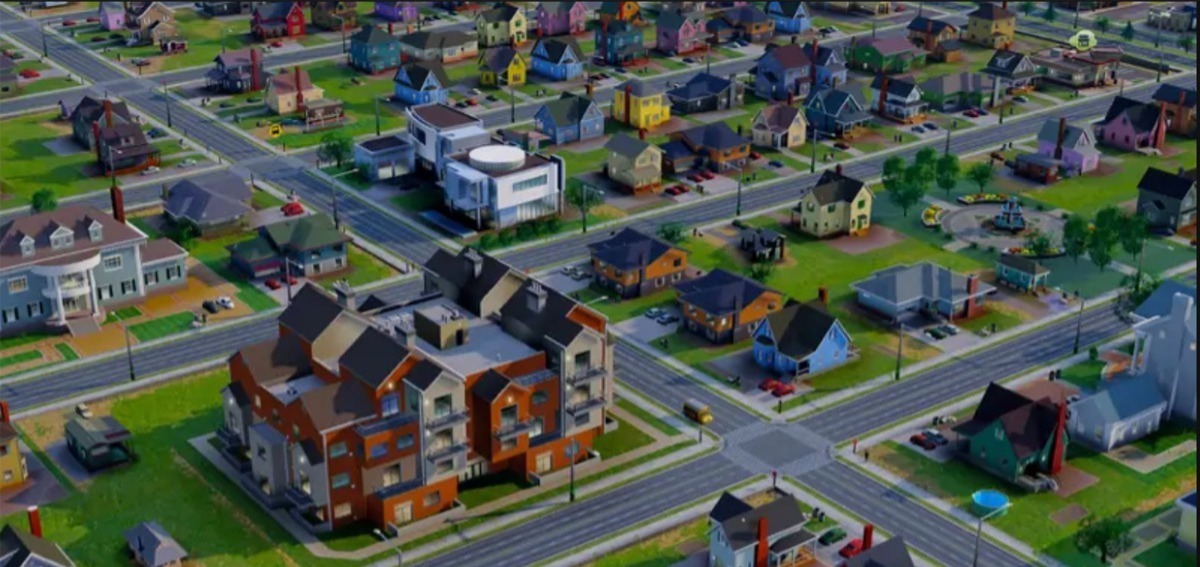Why are People Buying Virtual Land?

Image: Decentraland
By Dawn Pfaff, President and Founder of My State MLS
Our economy and how we interact with each other has evolved over the last 150 years in ways that would be inconceivable to people from the early 1900's. It all started with print.
First, we only had newspapers and signs as a way of communicating our products and services to the general public. We also used print to discuss ideas.
As technology and the economy has evolved, so has the way we communicate and advertise. After print came radio and then television. We could hear and then see our ideas and products which revolutionized how business was done. Then it went further with fax machines, and then email, America Online (AOL), the Internet, and the World Wide Web.
Then Google simplified Internet searching with their algorithm. I will admit when I first started using Google around 2000, I didn't realize it would become the powerhouse that it is today. But then came My Space which led to Facebook, Twitter, Instagram and social networks in general.
When social first came out I thought, wow what a cool way to communicate. I can send photos and keep in touch with my friends and family. But I missed the business model which turned out to be the real gem. Businesses got on board and now the best performing advertising can be found on social media. If you know how to work with the social media algorithms you can become influential (famous) and get paid to be a spokesperson for products. And of course, don't forget YouTube, now the second largest search platform on the Internet.
Be honest, when you first heard about YouTube way back when they started, you might have thought, who wants to watch three kids in their basement singing out of tune? Then YouTube grew into an instruction manual for everything and another great way to advertise and sell products. Print, radio and TV are on their way out when it comes to advertising dollars.
What's next? Today everything in our economy is either in person or 2-dimensional. So, the next step is 3D and 4D. There are many tech firms trying to perfect Holograms which is the future. Eventually 2-Dimensional flat screen websites will become the newspapers of yesterday.
Once Holograms and AR (Augmented Reality) are perfected you will be able to visualize yourself in any setting without actually being there. Instead of buying something on Amazon on a flat computer screen, you can see yourself in those clothes and inside that store, through a hologram in your living room. You see it in the virtual world, then place the order for it to be delivered to your real world. This is the metaverse.
The metaverse won't be one thing or place, just like the Internet has many websites, so too will the metaverse have many virtual worlds. Today they are just games, but sometime soon, these virtual worlds will move out of gaming and "just for fun" pastimes and businesses will find a way to reach their customers in these worlds. And this is where owning virtual land will become valuable.
First, you need to stop thinking of land as only dirt. Instead think about how the front page of the newspaper is laid out. The very top or masthead is considered to be the best "real estate" on that page. URLs (.com names) are also valuable real estate on the Internet. Facebook paid sixty million dollars ($60,000,000) to acquire the name and trademarks for their new corporate brand called Meta. Online entrepreneurs buy and sell URLs (.com names) for thousands of dollars.
The metaverse will be the next Internet or Web 3.0 as it's called. But just as gold, bitcoin and URLs are limited commodities, so too will be space in the metaverse. Ultimately one metaverse will be more crowded and populated than others, and Facebook has the jump right now. But I think the future of which metaverse will prevail has yet to be discovered.
One thing for sure, wherever the most eyeballs are, that is where the "virtual land" will be the most valuable. Right now, people who see the future are buying up space in the metaverse and hodl-ing (Holding On For Dear Life). Eventually businesses will need that virtual land to advertise their products to the masses and that will be the value.
The virtual land is being purchased as NFTs, or non-fungible tokens, which is a form of crypto currency - without the money part. The NFT represents ownership of that virtual land. Think of the NFT as the deed to that land. Because the metaverse will be in a decentralized blockchain format, that is how the NFT will prove ownership and secure its value. When the land is bought and sold, it will be done by transferring the NFT in exchange for crypto currency, which can then be used to buy real world goods and services or turned into cash.
There are real estate firms already getting into the metaverse. Sotheby's has a storefront in the virtual reality game Decentraland. I'm sure many more have a plan to follow.
At My State MLS, our team is researching, learning, and will continue to keep our clients and real estate stakeholders up-to-date on this interesting topic.
